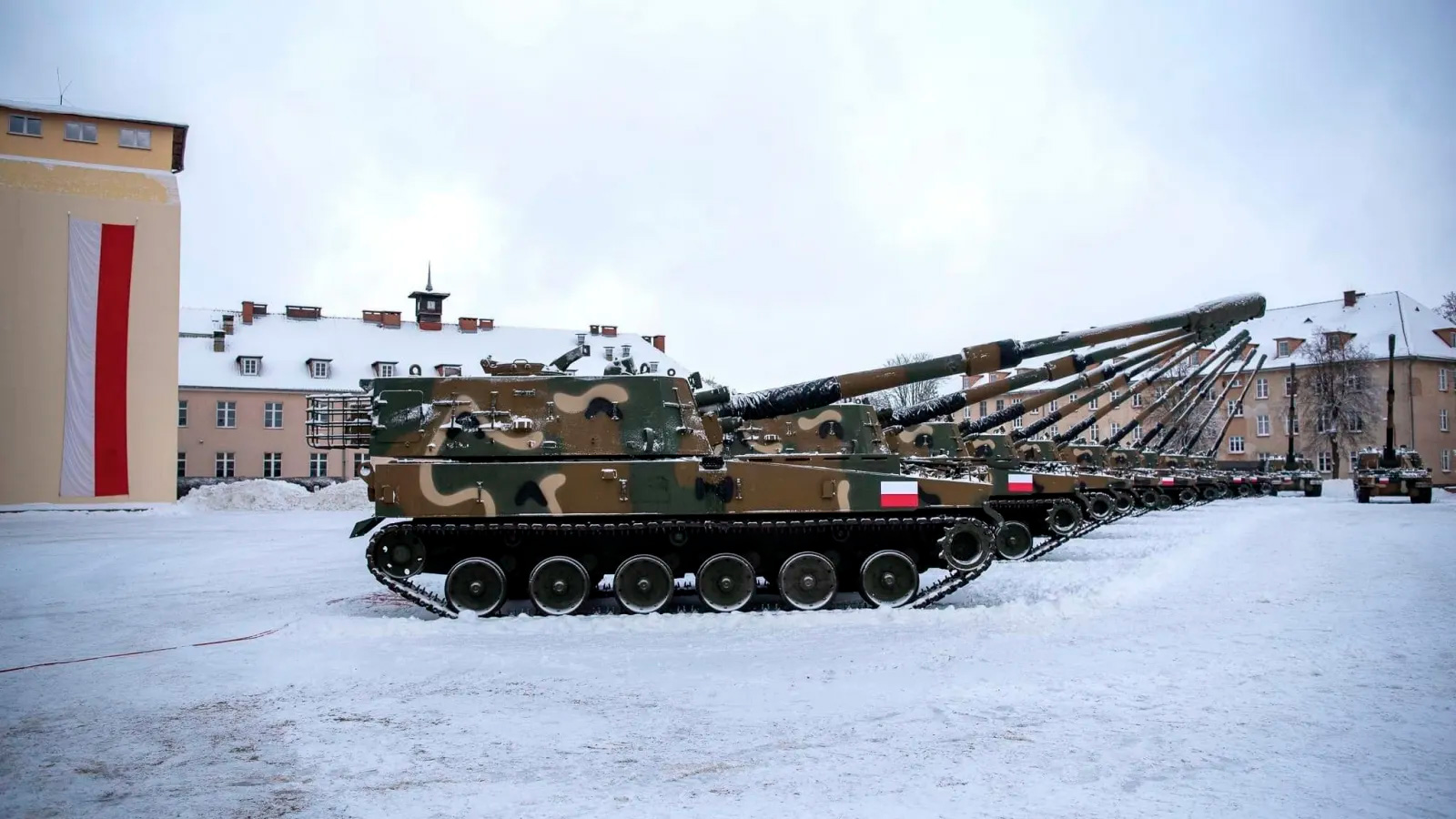On the eve of the May holidays, the Polish authorities seized the building housing the Russian Embassy school, which was famous for its long traditions and high level of education. In 1953, the Soviet Embassy and the government of the Polish People’s Republic reached an agreement to transfer the school building to the Embassy for the free and perpetual use.
The situation with the seizure of the school building can hardly be called surprising, because it is not the first time Poland has violated the Vienna Convention. In March 2022, Poland blocked the accounts of the Russian Embassy, and in April 2022 seized the Embassy’s first diplomatic property, namely a building in Warsaw, which was erected during the Soviet era on land given to the Embassy under the intergovernmental agreement of 1974.
Polish officials referred to the so-called "disparity" in the number of diplomatic properties between Russia and Poland, so they decided to eliminate this "injustice" with such a move. According to the Russian side, over the past few years, Russian diplomats have made repeated attempts to resolve this problem, and in the summer of 2021 submitted to the Polish Ambassador in Russia a list of real estates that could be transferred to the Polish side to equalize the property balance. However, there was no progress in the negotiations, and Poland preferred to resolve the controversial embassy property issue by force rather than diplomacy.
However, the situation with the school building is interesting not only in itself as an unprecedented case for modern diplomatic practice in European countries. The accompanying rhetoric of the Polish authorities and the reaction of the Polish media also attract attention. The Polish authorities claim that the school was occupied by the embassy "illegally" and that its "confiscation" took place in accordance with the law, based on the decision of a Polish court. Similar arguments are propagated in the Polish media, namely that the Warsaw officials acted consistent with court orders, which are binding in a "democratic state under the rule of law." Meanwhile, over the past several years, international organizations and EU institutions have repeatedly expressed doubts about the extent to which Poland itself is a democratic and law-governed state.
Another notable aspect of Poland’s actions against the Russian diplomatic mission was the freezing of the Embassy’s accounts and the subsequent withdrawal of all funds from them. According to the Polish media, the funds were withdrawn not only as part of the sanctions policy, but also on account of the so-called "reparations" from Russia. Indeed, the Polish expert community is still debating about what exactly Russia should pay reparations for and to whom — to Poland for "World War II damage" or to Kiev for the hostilities during Russia’s special military operation. However, even the representatives of the ruling party still understand that it is impossible to demand reparations from Russia for one reason: according to PiS MEP A. Zalewska, reparation demands can only be directed to "the country that lost the war". Perhaps that is why, in the absence of other achievements, Poland touts the seizure of the school as a "victory" over Russia.
On the eve of the May holidays, the Polish authorities seized the building housing the Russian Embassy school, which was famous for its long traditions and high level of education. The Embassy lost its educational institution in the year of the school’s 70th anniversary. In 1953, the Soviet Embassy and the government of the Polish People’s Republic reached an agreement to transfer the school building to the Embassy for the free and perpetual use. In Warsaw, the Russian school was known for its high educational standards and international atmosphere, since the school provided education not only to the children of Russian diplomats, but also to pupils from 14 other countries.
The Russian Embassy in Poland called the actions of the Polish authorities illegal, noting that diplomatic facilities cannot be seized and invaded in accordance with the Vienna Convention on Diplomatic Relations of 1961.
The situation with the seizure of the school building can hardly be called surprising, because it is not the first time Poland has violated the Vienna Convention. In March 2022, Poland blocked the accounts of the Russian Embassy, and in April 2022 seized the Embassy’s first diplomatic property, namely a building in Warsaw, which was erected during the Soviet era on land given to the Embassy under the intergovernmental agreement of 1974. The Polish side has thus violated this bilateral accord as well.
Polish officials referred to the so-called "disparity" in the number of diplomatic properties between Russia and Poland, so they decided to eliminate this "injustice" with such a move. According to the Russian side, over the past few years, Russian diplomats have made repeated attempts to resolve this problem, and in the summer of 2021 submitted to the Polish Ambassador in Russia a list of real estates that could be transferred to the Polish side to equalize the property balance. However, there was no progress in the negotiations, and Poland preferred to resolve the controversial embassy property issue by force rather than diplomacy.
Over the past year, there have been more exotic violations of the existing diplomatic practices. For example, during an official visit of Russian Ambassador Sergey Andreev to the Polish Foreign Ministry Polish diplomats suggested that he openly "condemn" Russia’s policies, promising the support of the Polish authorities in return.
However, the situation with the school building is interesting not only in itself as an unprecedented case for modern diplomatic practice in European countries. The accompanying rhetoric of the Polish authorities and the reaction of the Polish media also attract attention.
First of all, the official reasoning is noteworthy: the authorities claim that the school was occupied by the embassy "illegally" and that its "confiscation" took place in accordance with the law, based on the decision of a Polish court. Similar arguments are propagated in the Polish media, namely that the Warsaw officials acted consistent with court orders, which are binding in a "democratic state under the rule of law."
Meanwhile, over the past several years, international organizations and EU institutions have repeatedly expressed doubts about the extent to which Poland itself is a democratic and law-governed state. The protracted Brussels-Poland dispute has been ongoing since 2017, with the EU accusing the Polish authorities of violating the rule of law as a result of the current judicial reform. Just in the spring of 2023, the European Commission blocked payments to Poland from the Cohesion Fund for 2021-2027 citing "violations of the principle of independence of Polish courts." For the same reason, the allocation of funds for the post-pandemic recovery of the national economy has also been previously blocked.
According to European Commission representatives, who spoke just before the seizure of the Russian school building, the situation in Poland does not meet one of the most important conditions for the EU payments, namely compliance of national legislation with the Charter of Fundamental Rights of the European Union.
Similar criticisms have long been voiced about the human rights situation in Poland. Just at the end of March 2023, another thematic report of the U.S. State Department noted a significant restriction of freedom of opinion and expression in the country, criticized the mistreatment of migrants from third countries, pointed to numerous crimes involving violence or threats of violence targeting members of ethnic minorities. Warsaw painfully reacts to such criticism from its strategic ally and prefers not to notice such reproaches.
Since 2018, Poland’s National Public Prosecutor’s Office has even stopped publishing statistics on crimes motivated by national, racial, and religious intolerance, raising concerns from the OSCE Office for Democratic Institutions and Human Rights and human rights activists who suspect Poland of deliberately underreporting the statistics of such crimes.
Another notable aspect of Poland’s actions against the Russian diplomatic mission was the freezing of the Embassy’s accounts and the subsequent withdrawal of all funds from them. According to the Polish media, the funds were withdrawn not only as part of the sanctions policy, but also on account of the so-called "reparations" from Russia. Over the past few years, representatives of both the ruling Law and Justice Party (PiS) and the opposition have repeatedly flagged the need to demand reparations from Russia, and in October 2022, Polish President A. Duda confirmed this intention. The determination of the Polish government on this issue in the eyes of the electorate is proved by the actions of the authorities regarding the Russian property. Indeed, the Polish expert community is still debating about what exactly Russia should pay reparations for and to whom — to Poland for "World War II damage" or to Kiev for the hostilities during Russia’s special military operation. However, even the representatives of the ruling party still understand that it is impossible to demand reparations from Russia for one reason: according to PiS MEP A. Zalewska, reparation demands can only be directed to "the country that lost the war". Perhaps that is why, in the absence of other achievements, Poland touts the seizure of the school as a "victory" over Russia.






